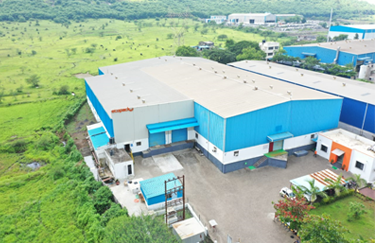How Boring & Conventional Packaging Is Hurting Your Business & the Environment

In today’s rapidly evolving marketplace, packaging plays a pivotal role in shaping consumer perceptions and experiences. While technological advancements have ushered in innovative packaging solutions, many businesses, particularly in India, continue to rely on conventional packaging methods, materials, and formats. Despite their widespread use, conventional packaging practices come with hidden costs that extend beyond the bottom line, impacting both businesses and the environment.
Sticking to the Conventional: A Glimpse of the Past
The prevalence of traditional packaging formats, such as single-use plastics, non-biodegradable materials, and excessive packaging, persists in various sectors, including food, retail, and e-commerce.
One of the primary reasons for this adherence to conventional packaging is its perceived cost-effectiveness. With numerous vendors offering cheap packaging solutions, businesses often prioritize short-term savings over long-term sustainability.
Additionally, the ease of availability of conventional packaging materials further reinforces their widespread use. From plastic bags to non-recyclable containers, these materials are readily accessible and can be sourced from a multitude of vendors, catering to businesses of all scales.
Moreover, ingrained practices and resistance to change contribute to the perpetuation of conventional packaging methods, despite growing awareness of their environmental impact.
The Detrimental Impact on the Environment
The environmental repercussions of conventional packaging are profound and multifaceted. Plastic pollution, in particular, poses a significant threat to ecosystems and wildlife. Once discarded, plastic packaging often ends up in landfills or oceans, where it can persist for hundreds of years, releasing harmful chemicals and disrupting marine life.
The widespread use of non-biodegradable materials exacerbates deforestation, as forests are cleared to meet the demand for paper-based packaging.
Moreover, the manufacturing and disposal processes associated with conventional packaging contribute to carbon emissions and environmental degradation. From energy-intensive production methods to landfilling and incineration, each stage of the packaging lifecycle leaves a considerable environmental footprint.
As a result, conventional packaging perpetuates a linear economy model, where resources are extracted, used, and discarded, leading to resource depletion and environmental degradation.
Embracing Sustainable Packaging Alternatives: A Path to Progress
Amid growing concerns over environmental sustainability, there is a growing shift towards embracing sustainable packaging alternatives. Eco-friendly materials, such as biodegradable plastics, recycled paper, and compostable packaging, offer viable alternatives that minimize environmental harm while meeting consumer demands for responsible and ethical practices.
Sustainable packaging solutions promote resource conservation, waste reduction, and circular economy principles, thereby paving the way for a greener, healthier planet. By adopting sustainable packaging practices, businesses can not only reduce their environmental footprint but also enhance brand reputation, foster customer loyalty, and contribute to a brighter, more sustainable future for generations to come.
Benefits of Sustainable Packaging
The adoption of sustainable packaging offers a multitude of benefits for businesses and the environment.
- Firstly, sustainable packaging materials, such as biodegradable plastics and recycled paper, reduce reliance on non-renewable resources, leading to lower carbon emissions and resource depletion.
- Additionally, sustainable packaging solutions are often designed to minimize waste generation, promoting a circular economy model where materials are reused and recycled to create new products.
- Moreover, sustainable packaging can enhance brand reputation and customer loyalty. As consumers become increasingly eco-conscious, they are more likely to support businesses that prioritize environmental sustainability. By opting for sustainable packaging, businesses can attract environmentally conscious consumers, differentiate themselves from competitors, and build long-term brand loyalty.
- Furthermore, sustainable packaging solutions can drive innovation and product differentiation. From innovative designs to unique materials, sustainable packaging offers businesses the opportunity to stand out in the market and appeal to environmentally conscious consumers.
- By leveraging sustainable packaging as a strategic tool, businesses can strengthen their brand identity, increase market share, and drive sustainable growth.
Ecopack: Pioneering Sustainability in Packaging
At Ecopack India, we are committed to revolutionizing the packaging industry with our range of sustainable alternatives. From biodegradable paper bags to compostable food containers, our products embody eco-consciousness and innovation. By choosing Ecopack, businesses can transition towards a more sustainable future, where packaging serves as a vehicle for positive change rather than environmental degradation.
As a leading packaging company in India, we understand the importance of sustainable packaging solutions in driving environmental stewardship and business success. Our commitment to sustainability extends beyond our products to encompass our entire supply chain, from sourcing eco-friendly materials to minimizing waste and emissions. Together, let’s embark on a journey towards a greener, more sustainable future, one package at a time.


